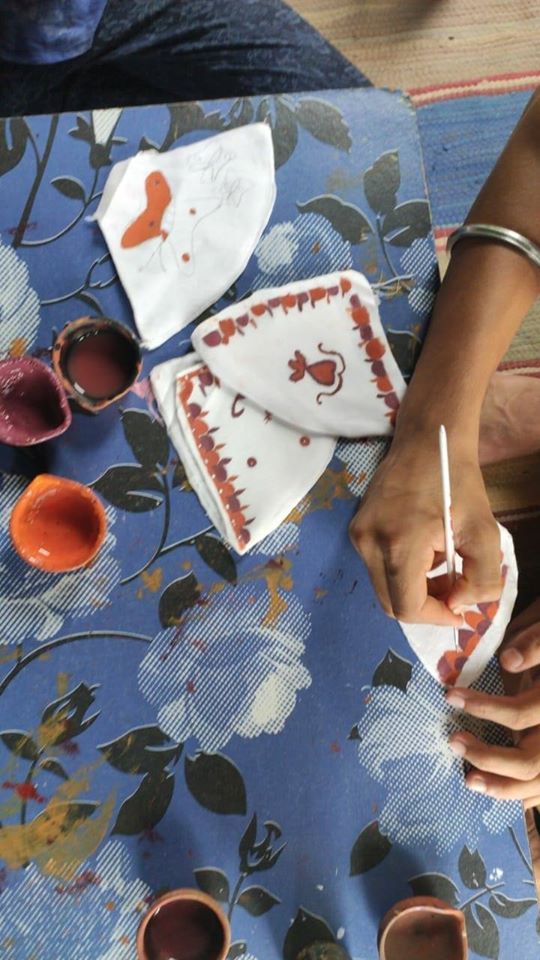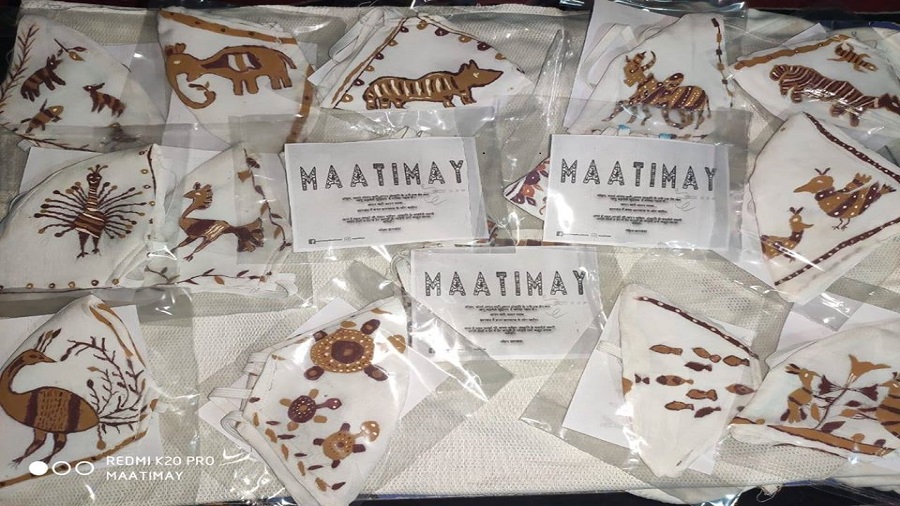Masks with Sohrai and Kohbar painting designs are now available in Hazaribagh markets, as the coronavirus pandemic has rendered the facemask an essential commodity which is in great demand.
Various kinds of designer face masks are now available, and people young and old are spoilt for choice.
Sohrai and Kohbar paintings are indigenous art forms also known as the wall paintings of Hazaribagh.
Kohbar ("koh" means cave and "bar" means married couple), is generally associated with marriages, whereas sohrai celebrates harvest and fertility.
Sohrai is a harvest festival celebrated in Jharkhand as well as in Bihar, Chhattisgarh, Odisha, and West Bengal
Artists use natural resources such as red, black, yellow and white soil, cow dung, coal and powdered leaves, to make the colours.

An Artist paints the mask in Hazaribagh Vishvendu Jaipuriar
They bring the soil from Barkagaon, around 65km from Hazaribagh, where the tradition has been kept alive, thanks to a few villagers.
Anirudh Upadhyay whose NGO Maatimay has taken this initiative to replicate the indigenous art on the masks.
Anirudh had made a film on the two art forms in 2016.
“I became emotionally connected to these art forms. I decided to make these paintings on the three layered cotton masks to popularise it among people,” he added.
Upadhyay said the NGO team is clocking in eight to ten hours daily to paint the Sohrai and Kohbar masks.
Anjali Mishra, Anamika Upadhyay, Prabha Singh, Naveen Upadhyay, Aman Upadhyay, Sejal Singh and few others are part of the team.
“The team is making 100 to 150 masks daily,” Anirudh said.
One such mask costs Rs. 50 and they are trying to sell the mask on various online platforms, especially Amazon.
He said they will make it available in the shops of Hazaribagh city soon.
“It’s the best way to let people know about these paintings, originally of Barkagaon,” he added.
Former union minister of state for civil aviation, Jayant sinha also praised Anirudh’s efforts and his team and said these ancient art forms of Hazaribagh are reaching people through these masks.
“An ancient culture is reaching to houses in this way,” Sinha said.
Local people appreciated Maatimay’s initiative and said it was a good way to spread awareness of their history.










